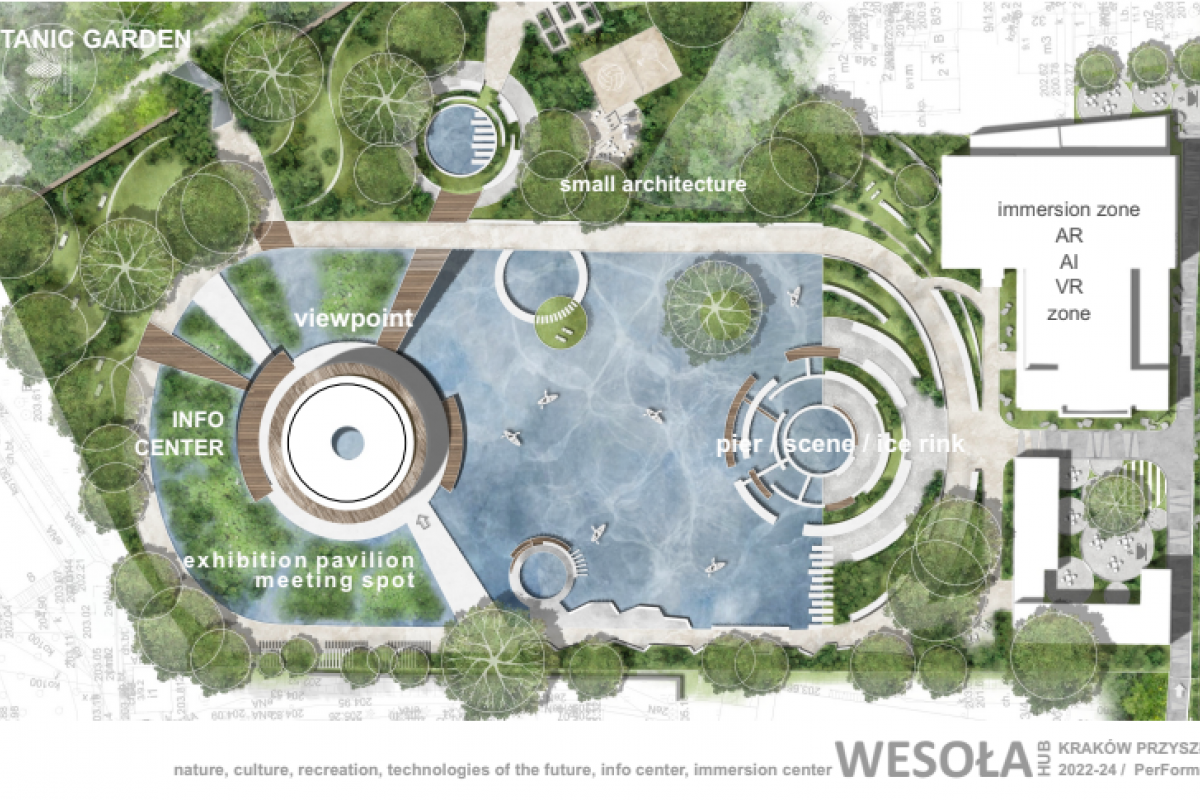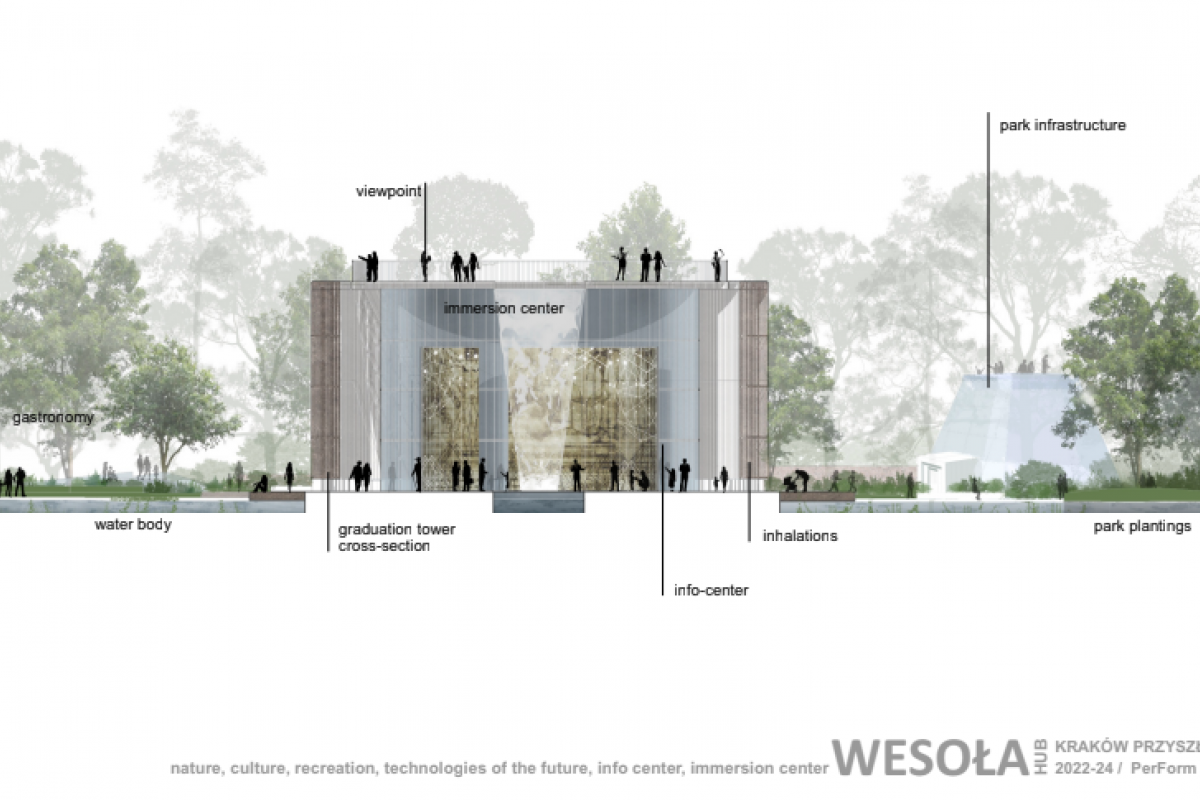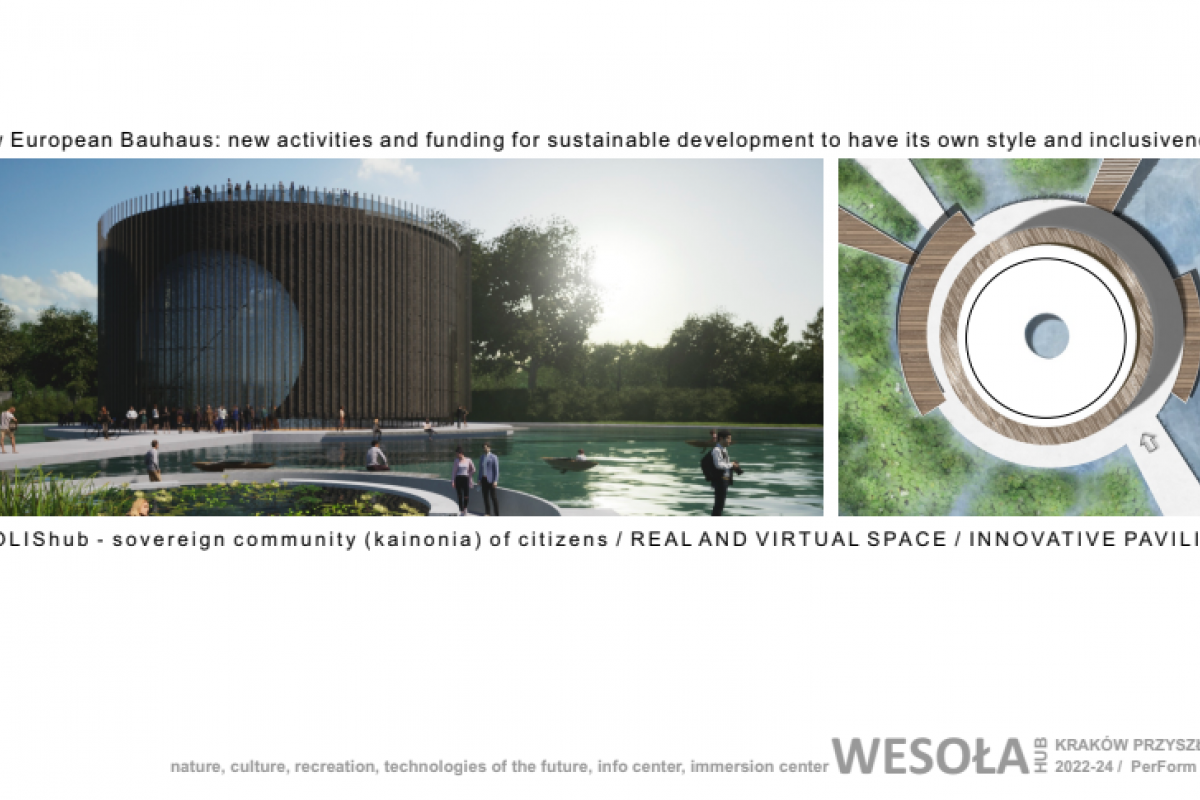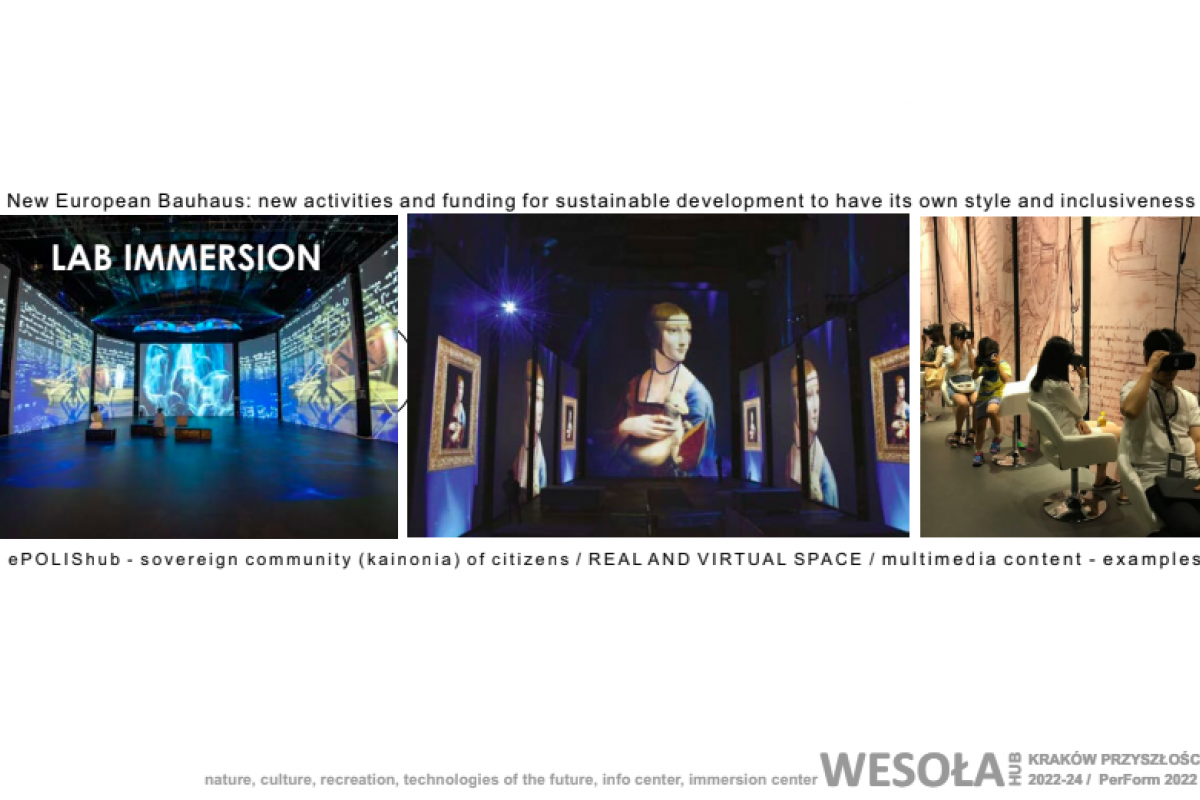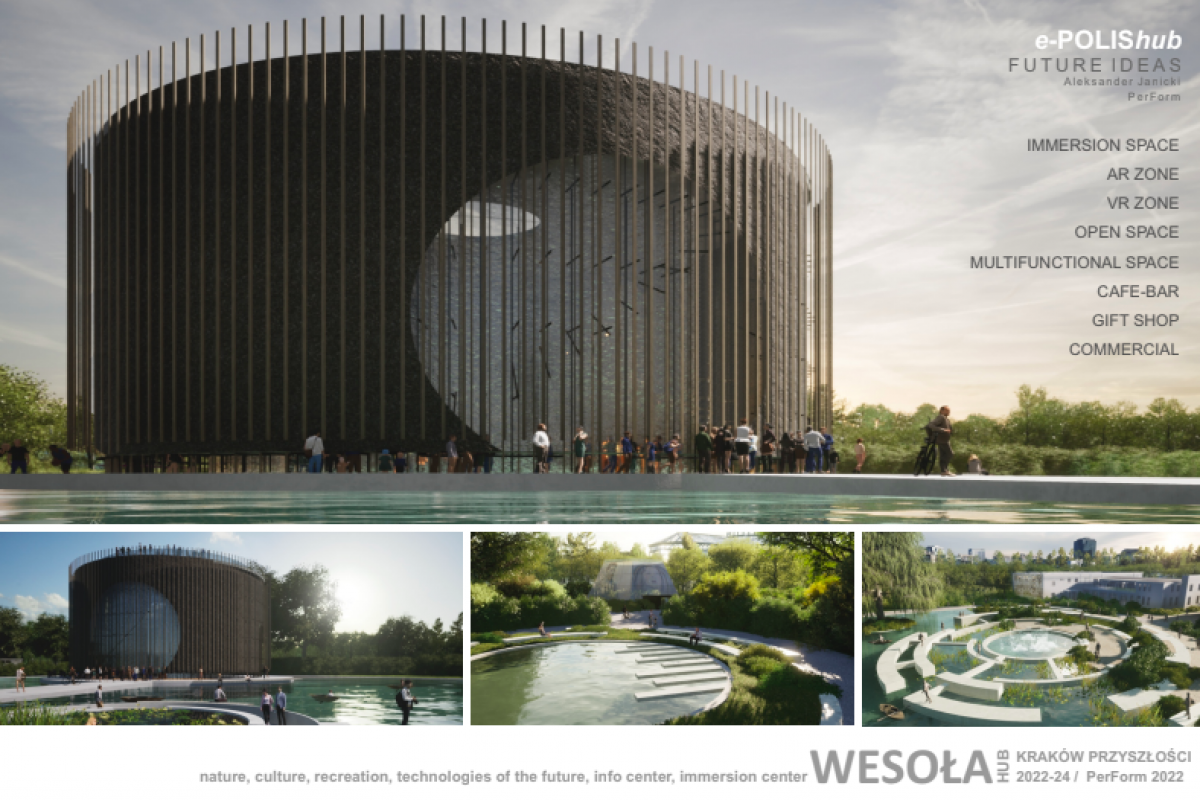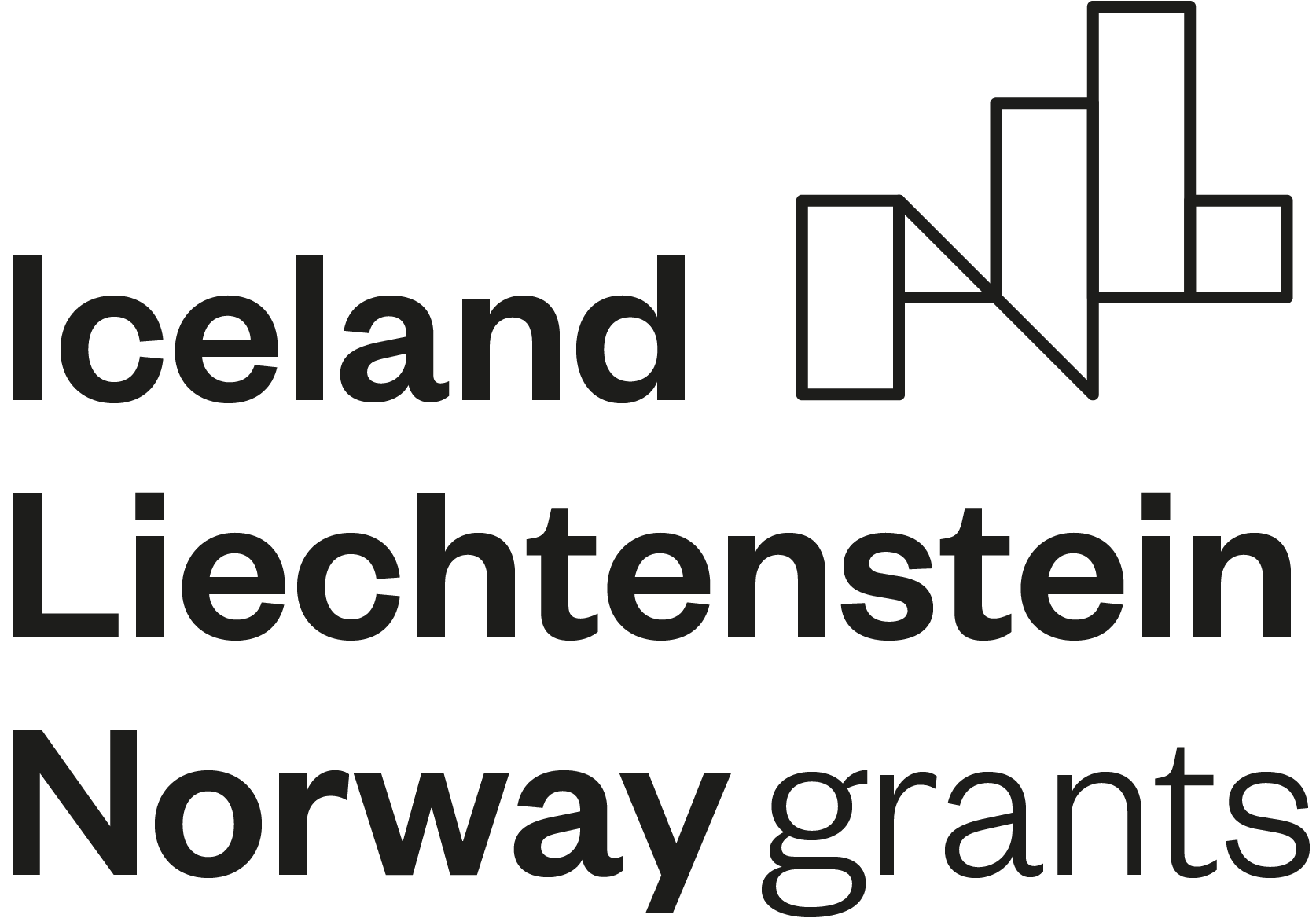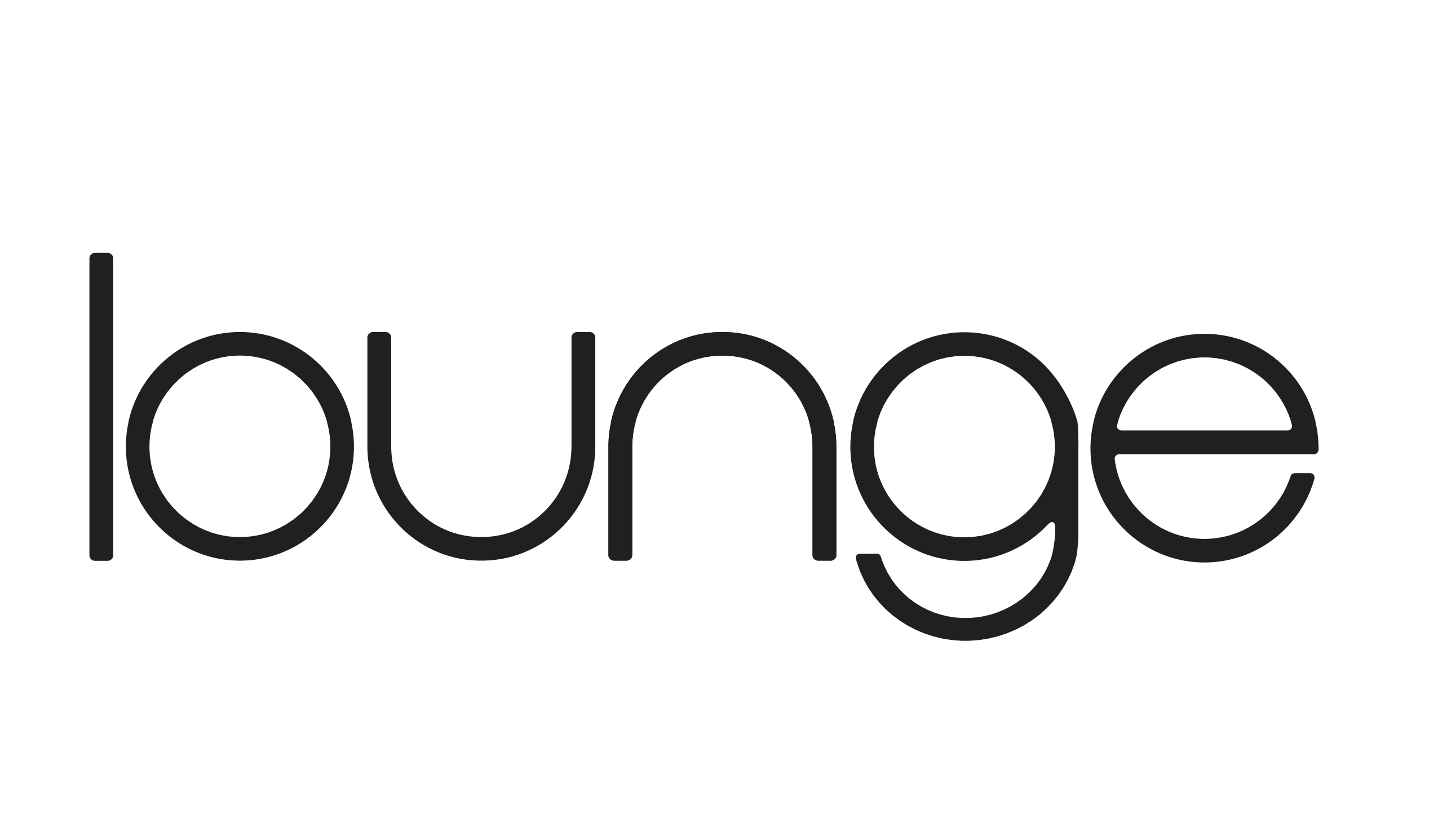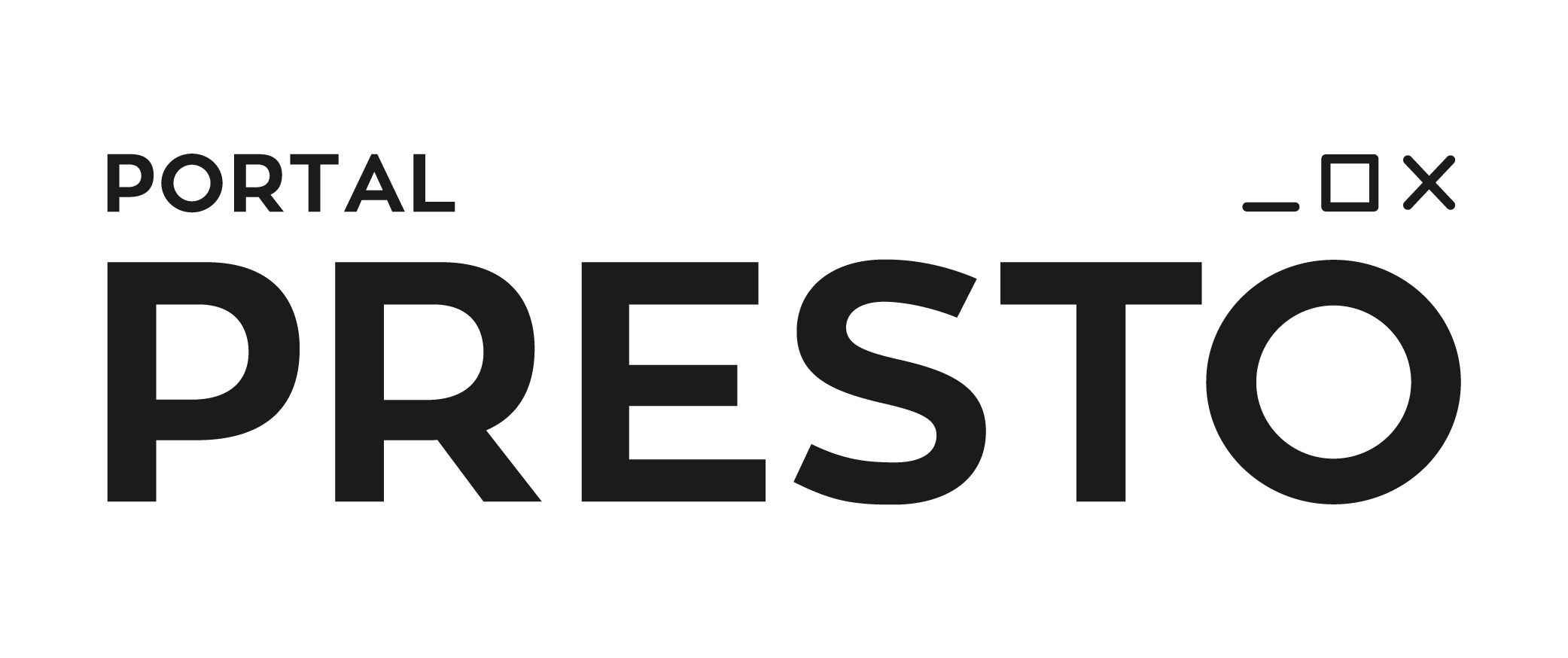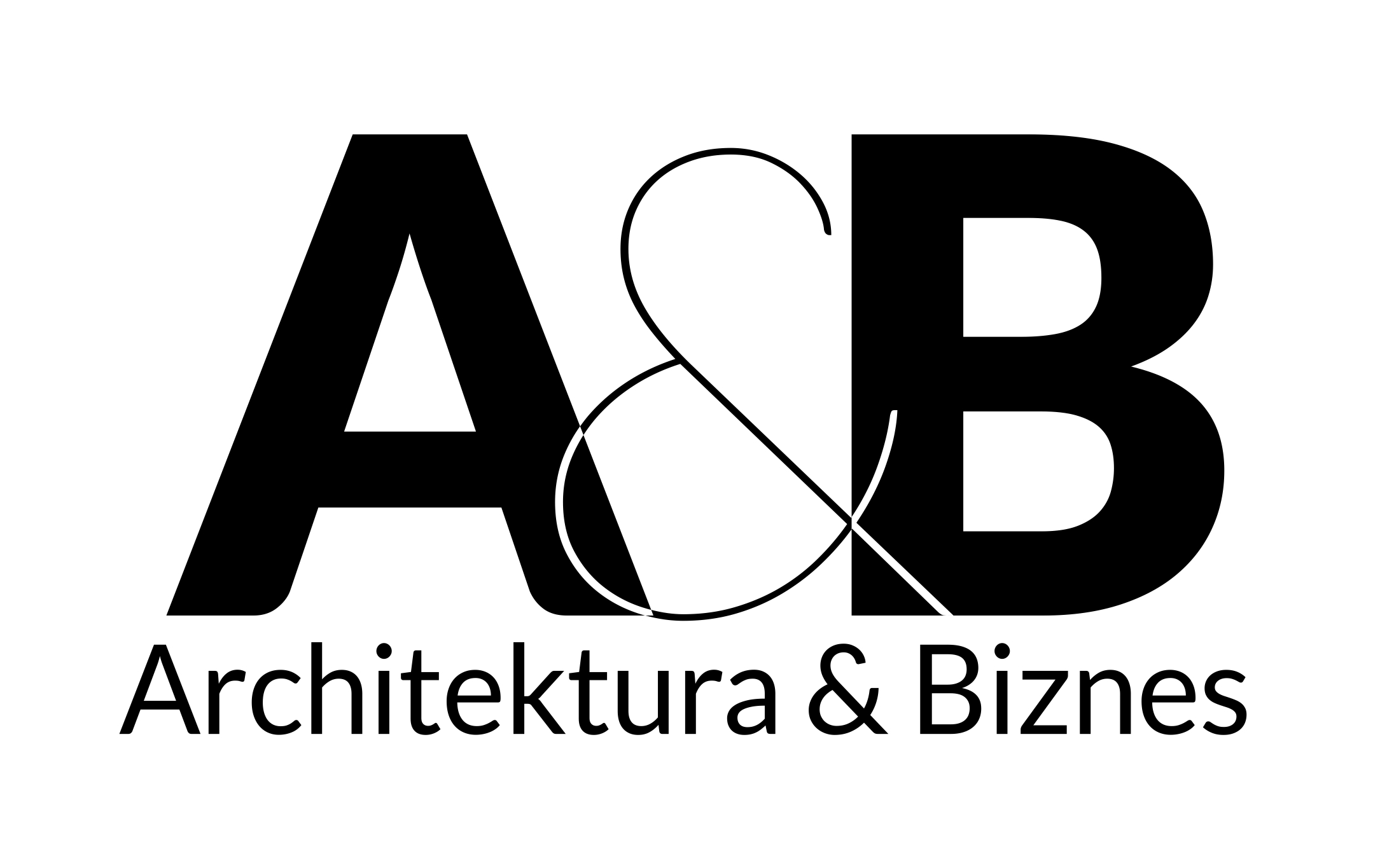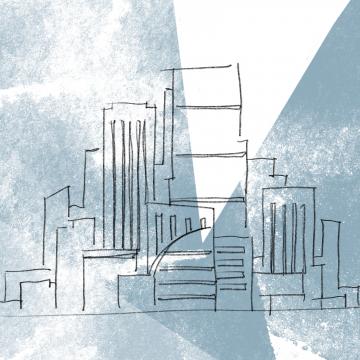
e-POLIS - City of the future
According to the UN’s research, 75% of people will live in cities till 2050. Are cities ready for so many inhabitants? How to build new cities, which would keep up with their citizens’ needs?
Big Metropolitan areas lure us with the fast pace of life, broad possibilities, and perspectives. Weekly, almost 3 million people move to cities in the search of jobs, education, or better life quality. However, the more inhabitants, the more challenges rise upon the governors. Issues such as pollution, traffic jams, and lack of housing are getting bigger and bigger. Moreover, the fast pace of life doesn't favor creating a circular economy.
There are a lot of problems to solve in modern cities. However, let's imagine that in each city there is a place, where the border between the local and global, the virtual and real world, is fading. A place where various fields unite, creating new, interdisciplinary creations. Sounds intriguing and surreal in one, doesn’t it?
All of these ideas are included in the concept of e-POLIS - the city of the future. This is an attempt at uniting the art of new media with the practice of the creative industry, and the forecasts for the future. Universities and research institutions experiment with combining virtual reality, augmented reality, and everyday life.
In e-POLIS, the city takes responsibility for animating civil society. It enhances and sensitizes its citizens to changes concerning technology, holds conversations about it, and encourages them to create the city of the future together.
The creation of intelligent cities of the future is already happening. The performance called Tabula Rasa held in 2021 by Alek Janicki was one of the events beginning the dialogue with the citizens of Cracow. The goal was to encourage the citizens to speak up about the new zoning of Wesola - one of Cracow’s districts. The social consultation was held throughout the performance. Each of the participants was assigned an easel and was encouraged to draw the center of Cracow the way they would like to have it.
Akcja parateatralna w przestrzeni publicznej. 100 sztalug, na każdej biała, czekająca na wypełnienie kartka. Biała karta historii Wesołej, która czeka na zapełnienie nową treścią i znaczeniem.
The process of creating the new vision of the Wesola district has already begun. The author of the project writes:
“The Wesoła Hub project is based on the idea of creating an innovative city - e-POLIS - a city of the future. The place which will become the Agora (in the original sense of the word) - will be the center, the place of assembly, where a democratic lifestyle is prevailing, and citizens undertake their actions. Creating spaces which are already democratic and allowing for undertaking all kinds of actions as well as making them easily adaptable to the citizens’ needs, is a way to create e-POLIS faster.”
As opposed to functionality, where one place is assigned to just one function like a shop or a theater, the design of the city of the future hints towards flexibility. The innovation of this idea is centered around designing buildings in a multidimensional way; equipping them with key specifications like the elevator and the stairs, while the rest of the space can be adapted according to the current needs.
WESOŁA HUB - PROJECT OF EUROPEAN STANDARDS
The Wesoła Hub project is part of the New European Bauhaus and is in line with the assumptions of the European Green Deal. To achieve climate neutrality by 2050, bridges must be built between different disciplines - the worlds of science, technology, art, culture, and industry. Space shapes the community; it has an impact on how we live. Architecture’s opening up to i.a. interdisciplinarity invites everyone to create places that are tailored to their needs, makes one think, and inspires them to implement innovative ideas.
In the process of building the city of the future, the requirements of Driving Urban Transition (well-known by Wesoła founders) cannot be forgotten. DUT focuses on creating:
- Positive Energy Districts, are all about the transformation of the urban energy system by supporting the acquisition of energy from renewable sources.
- The 15-minute cities; concerning the revitalization of the city space and mobility assume that a citizen should be able to fulfill their needs in up to 15 minutes worth of distance from the place they live.
- A pathway of transition to a Circular Urban Economy and making the cities greener.
The founders of the Wesola Hub project plan to check the majority of standards set by European Union programs and create a recycled new world. However, they emphasize that the history of the district is important to them, therefore, through continuing the historical inspirations, they want to give this place a new identity which will start a new chapter of its history with the help of modern technology.
According to the plan the building, which is already standing in the area of Wesola, will be adapted to a lab of new technologies. Combining low-tech and high-tech on different levels will educate us that not every innovation needs a nuclear reactor. The rest of the objects which have lost their primary function will be revitalized. The sports field will be converted into a water reservoir designed in line with the method of Re-USE. Hence it will fulfill the DUT requirements concerning building the Positive Energy Districts and show that simple moves matter. To make it work only a pumping station is needed; it would pump water collected from the vicinity of the Mogilskie Roundabout, which is currently discharged into the Vistula river, to Wesoła and the Botanical Garden. This process would contribute to significant savings in the budget of this institution. Moreover, the newly created body of water would serve as a highlight of the park, where citizens could relax and spend time, thus improving their health and well-being. The design also assumes building a graduation tower designed in the spirit of combining the past and tradition with modernity. This space would serve as yet another center for immersion, meanwhile still offering its inhalation benefits.
A building of the city of the future would allow one to physically immerse in the digital world; something completely different than what VR offers through a reality that we enter through goggles. This would be a space that is shared with viewers in the form of large-format projections that create a closed, spectacular whole, embellished with a whole set of special effects to affect the emotions. Creating such a space is a great challenge requiring the collaboration of specialists with various skills. Nevertheless, it would be a brilliant, educational platform, one of a kind in Europe. Most importantly, however, it could represent and promote Cracow and its history.
e-POLIS - City of the Future is not just an idea; it is a specific plan to build a civic, modern city adapted to the constantly evolving urban needs. Wesoła Hub, on the other hand, is a project that is likely to become not only a showcase of Krakow or Poland but also a model to be followed by all cities. The use of the aforementioned technologies already brings us into a new era. Unlike cities - the laboratories of the future, Wesoła Hub is to become a crucial social center with Agora at the forefront.
